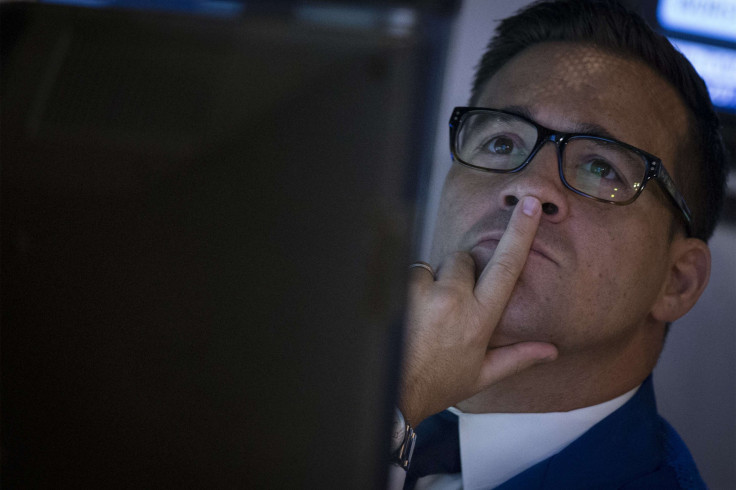Wall Street Whiplash: Does The Market Fall Predict Temporary Volatility, Or A Major Correction?

Concerns about the global economy are pushing U.S. stocks down -- and may keep the market volatile. The Dow Jones Industrial Average finished lower for a third straight week on Friday, as equities fell to session lows after the S&P 500 and the Nasdaq Composite finished their worst week since May 2012.
Investors have had a whiplash week. The Dow fell 272 points on Tuesday, only to soar 275 points the following session. The Dow then plummeted 334 points on Thursday, its worst loss of the year, and fell again Friday. The CBOE Volatility Index, a gauge of investor uncertainty, spiked above 20 for the first time since early February and rose 2.48 percent to close at 21.24 on Friday.
Could this be a temporary period of volatility, or are the financial markets headed toward a major correction?
Jason Weisberg, managing director at Seaport Securities, spoke to IBTimes TV at the New York Stock Exchange on Friday to weigh in on the recent gyrations in the financial markets. Here's what he had to say.
September and October have, historically, been spooky months for investors, given the stock market crash of 1929, Black Monday in 1987 and market meltdown in October 2008.
“It seems like the gloom and doom story always pops up around this time of the year,” said Peter Cardillo, chief market economist at Rockwell Global Capital. “I don't think it's going to reach a full-blown correction level. This time the story is around the economic slowdown in the global economy and the deflationary concerns in Europe. That reenacts that fear factor.”
A separate concern weighing on the global economy is Germany, Europe's traditional powerhouse. The country is showing signs of weakness and could be falling into recession.
Another factor in the recent volatility could be the Federal Reserve winding down its economic stimulus program this month, bringing to an end to the five-year-old asset purchasing program. The Federal Open Market Committee announced in December 2013 it would begin tapering its monthly purchases of Treasury bonds and mortgage-backed securities in January.
“The market is certainly is not going to have extra liquidity,” said Cardillo. “Perhaps it’s going to be more of a reality market, as opposed to an unofficial one.”
Another indicator to watch: The Russell 2000, an index of small-cap stocks, which saw its longest weekly-loss streak in nearly a decade after it hit a 52-week low on Friday.
“Volatility is definitely here to stay,” said J.C. Parets, founder & president of Eagle Bay Capital. “One of the major reasons why is because of what we’re seeing in the Russell 2000. The 200-day moving average is now downward sloping.”
Options contracts, which allow a holder to buy or sell an underlying security at a given price, expire on Friday, Oct. 17. That's likely to mean ... yes, more volatility.
© Copyright IBTimes 2024. All rights reserved.





















